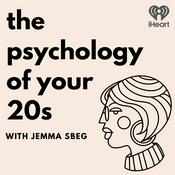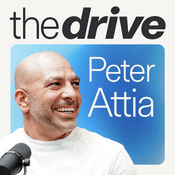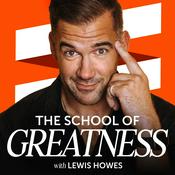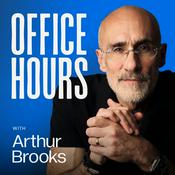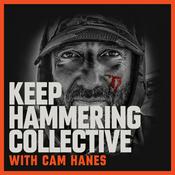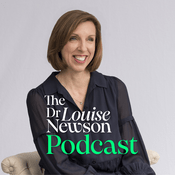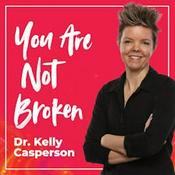469 episodes
- Peer support is an often overlooked but important tool that can reduce isolation, increase confidence and complement various health services. We take a look at a project in Ireland where older volunteers are paired with those in a similar age bracket to provide a weekly chat and health check-in in their homes. This provides a safe space where clients can share any concerns and flag up potential health issues before they get more serious.
Then we turn to Brazil where an interactive game, co-designed by Brazilian teenagers in conjunction with Oxford and Brasilia Universities, helps students learn more about mental health and how they can help friends who are struggling.
People Fixing The World from the BBC is about brilliant solutions to the world's problems. We release a new edition every Tuesday. We'd love you to let us know what you think and to hear about your own solutions. You can contact us on WhatsApp by messaging +44 8000 321721 or email [email protected]. And please leave us a review on your chosen podcast provider.
Presenter: Myra Anubi
Producer/reporter: Claire Bates
Editor: Jon Bithrey
Sound mix: Hal Haines
(Image: Characters from the Brazilian game Where is Kaue, Protagonistas) - Cities are growing and developing at a faster rate than at any time in history. More than half the world’s population now live in cities. But cities don’t always offer the best opportunities for those living within them. They can be polluted, congested and often don’t have enough green spaces or playgrounds.
We find out about two cities trying to change that. The mayor of Addis Ababa in Ethiopia say she wants her city to be the best in Africa to raise a child and be a mother. We find out what she’s trying to do.
And in the Colombian capital, Bogota, we’ll visit the city’s ‘Care Blocks’ where people are given the opportunity to learn new skills - or just relax - while their children or dependents are looked after.
People Fixing The World from the BBC is about brilliant solutions to the world's problems. We release a new edition every Tuesday. We'd love you to let us know what you think and to hear about your own solutions. You can contact us on WhatsApp by messaging +44 8000 321721 or email [email protected]. And please leave us a review on your chosen podcast provider.
Presenter: Myra Anubi
Producer: Claire Bowes
Colombia reporter: Laura Ubate
Editor: Jon Bithrey
Sound mix: Andrew Mills
(Image: Caregivers and children in Bogota, Colombia, learn to ride bikes, Laura Ubate/BBC) - An innovative scheme in Scotland is helping dads in prison become better parents. Myra Anubi visits Barlinnie jail in Glasgow to meet the prisoners taking part. First they are taught parenting skills and then their children are brought into the jail for sessions of active physical play. Supporters of the programme say it is not just about benefits for prisoners - it is helping to create strong family bonds which might then reduce rates of reoffending.
It is based on a successful scheme in Australia called Healthy Dads, Healthy Kids. This was set up to get people fit and tackle high levels of obesity in the wider population. We talk to the founder who explains how it has improved the lives of hundreds of fathers and their families.
People Fixing The World from the BBC is about brilliant solutions to the world's problems. We release a new edition every Tuesday. We'd love you to let us know what you think and to hear about your own solutions. You can contact us on WhatsApp by messaging +44 8000 321721 or email [email protected]. And please leave us a review on your chosen podcast provider.
Presenter: Myra Anubi
Producer: Richard Kenny
Editor: Jon Bithrey
Sound mix: Annie Gardiner
(Image: Prisoners and their children at Barlinnie prison in Scotland, Scottish Prison Service) - Wild horses have been roaming public lands in the American West for over a century but their population numbers are far greater than what is considered an appropriate management level. This is causing ecological damage and strains on natural resources, in addition to concerns about the horses' health. This has become a deeply contentious and emotive issue. We head out into the desert, driving 100s of miles across the mountains and plains of Nevada and California, to witness first hand how different stakeholders are putting their differences aside and coming together to find innovative solutions.
- The Igba Boyi apprenticeship scheme, described as the world's largest business incubator, has helped the Nigerian Igbo people build generational wealth in the devastating aftermath of the Civil War.
The scheme involves a master mentoring an apprentice who, upon graduation, is "settled" with start-up funds and contacts to launch their own business.
BBC Reporter Chiagozie Nwonwu explores this vital tradition and why it is now at risk of fading out in modern Nigeria.
More Health & Wellness podcasts
Trending Health & Wellness podcasts
About People Fixing the World
Brilliant solutions to the world’s problems. We meet people with ideas to make the world a better place and investigate whether they work.
Podcast websiteListen to People Fixing the World, The Psychology of your 20s and many other podcasts from around the world with the radio.net app
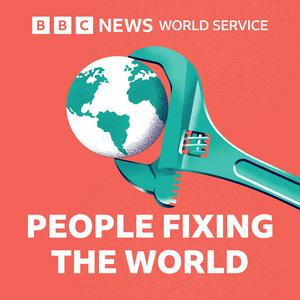
Get the free radio.net app
- Stations and podcasts to bookmark
- Stream via Wi-Fi or Bluetooth
- Supports Carplay & Android Auto
- Many other app features
Get the free radio.net app
- Stations and podcasts to bookmark
- Stream via Wi-Fi or Bluetooth
- Supports Carplay & Android Auto
- Many other app features


People Fixing the World
Scan code,
download the app,
start listening.
download the app,
start listening.

